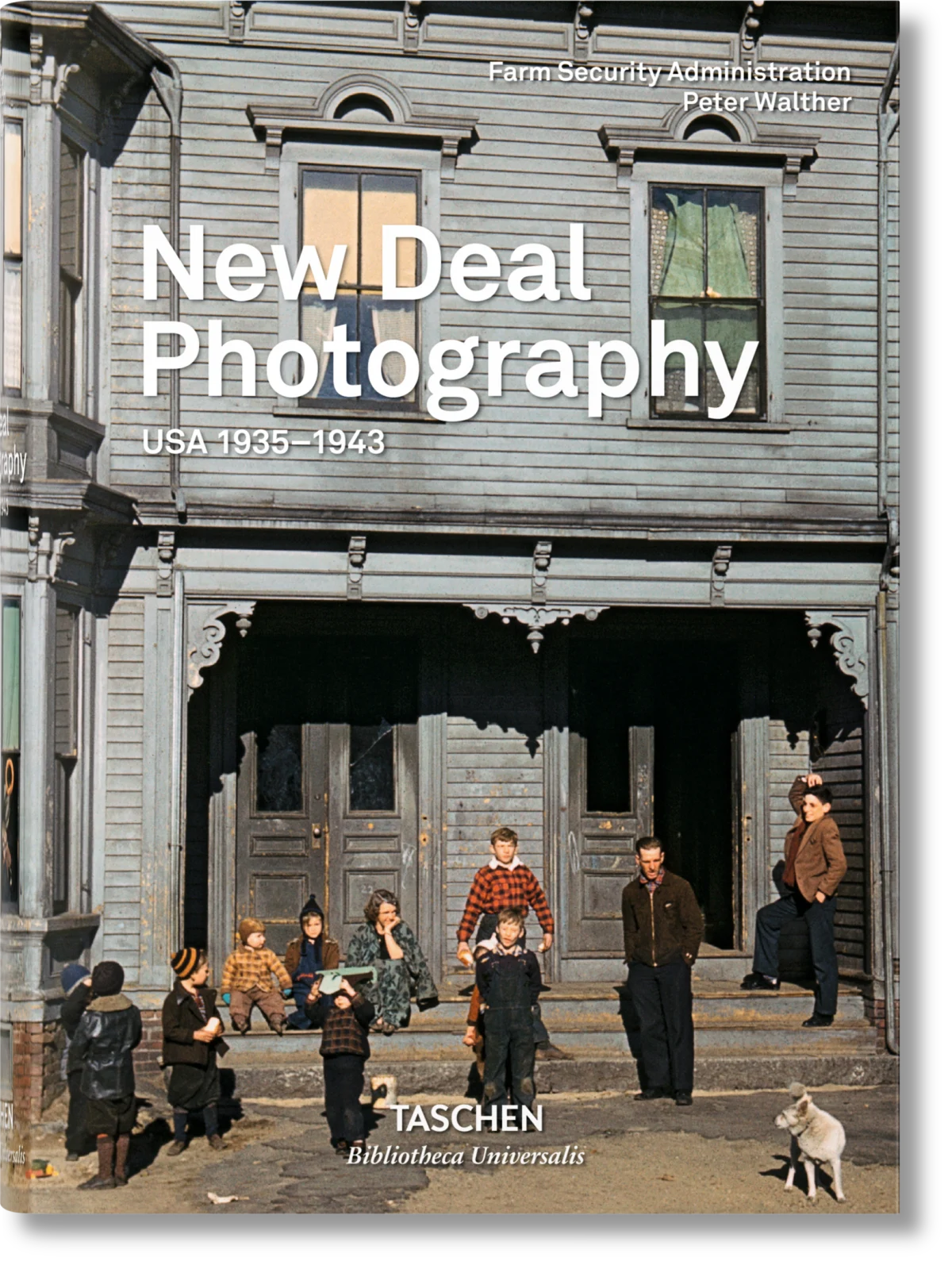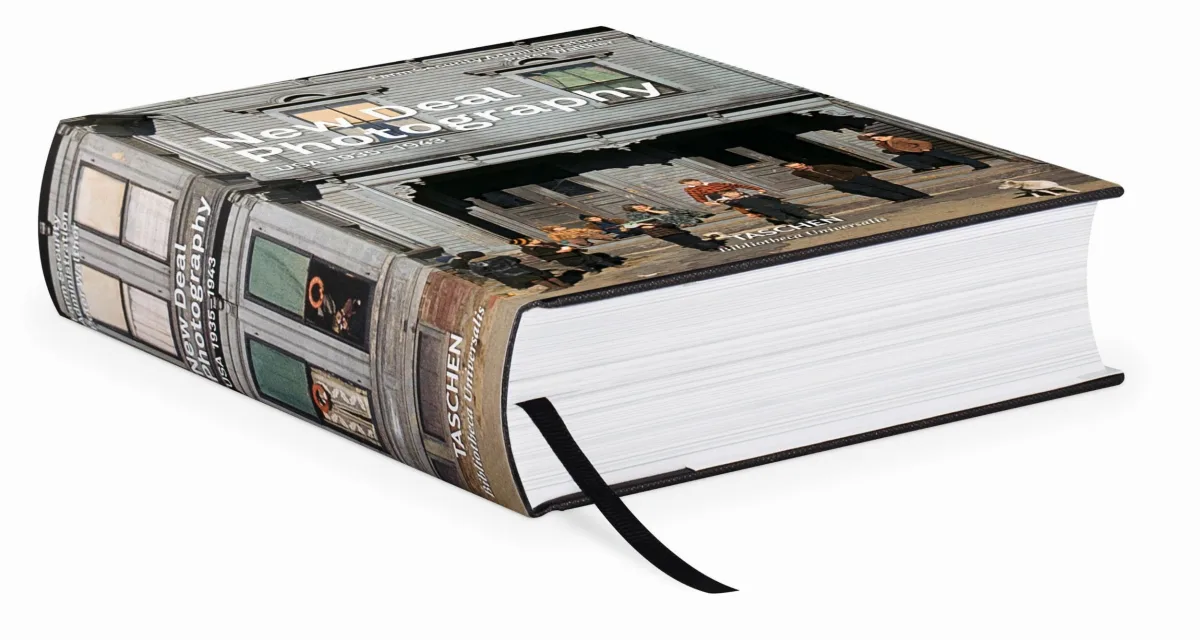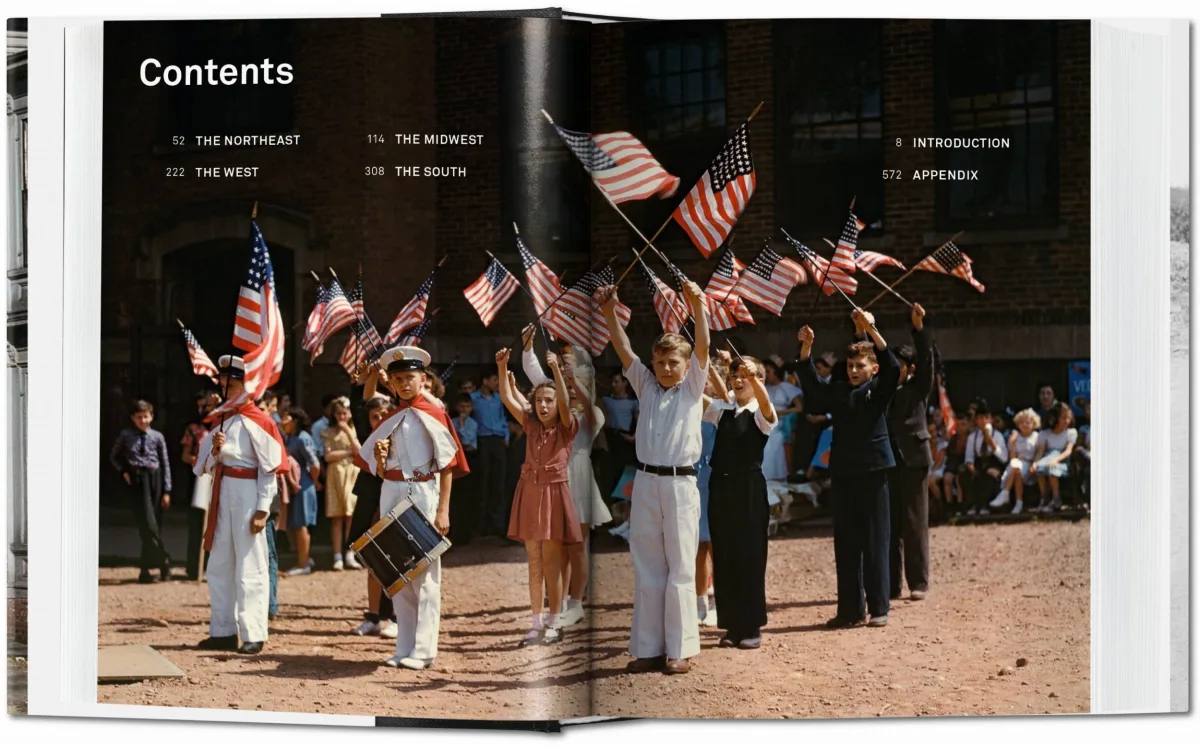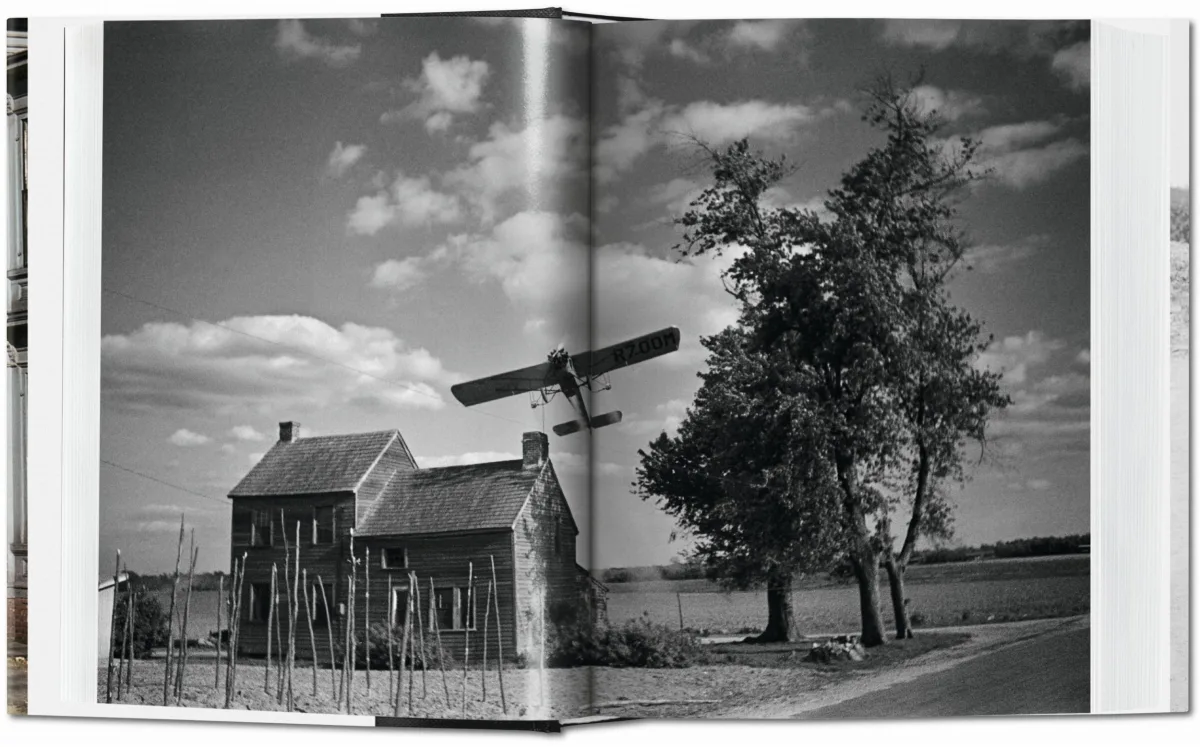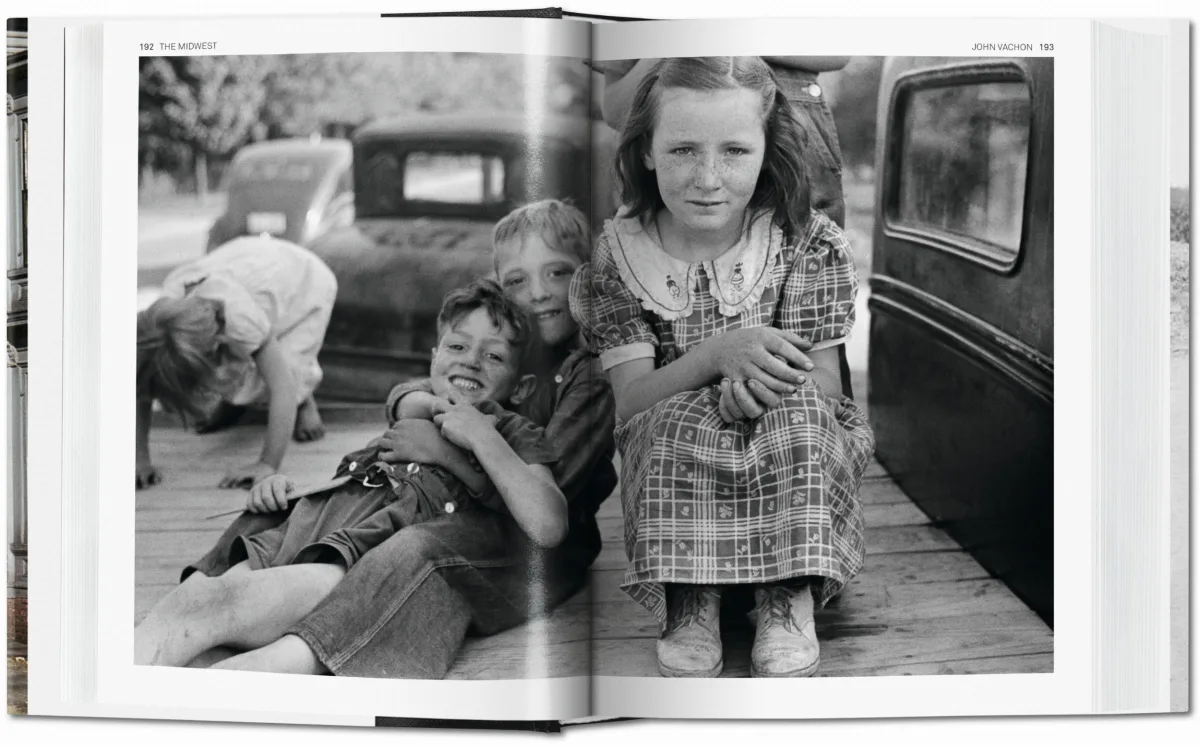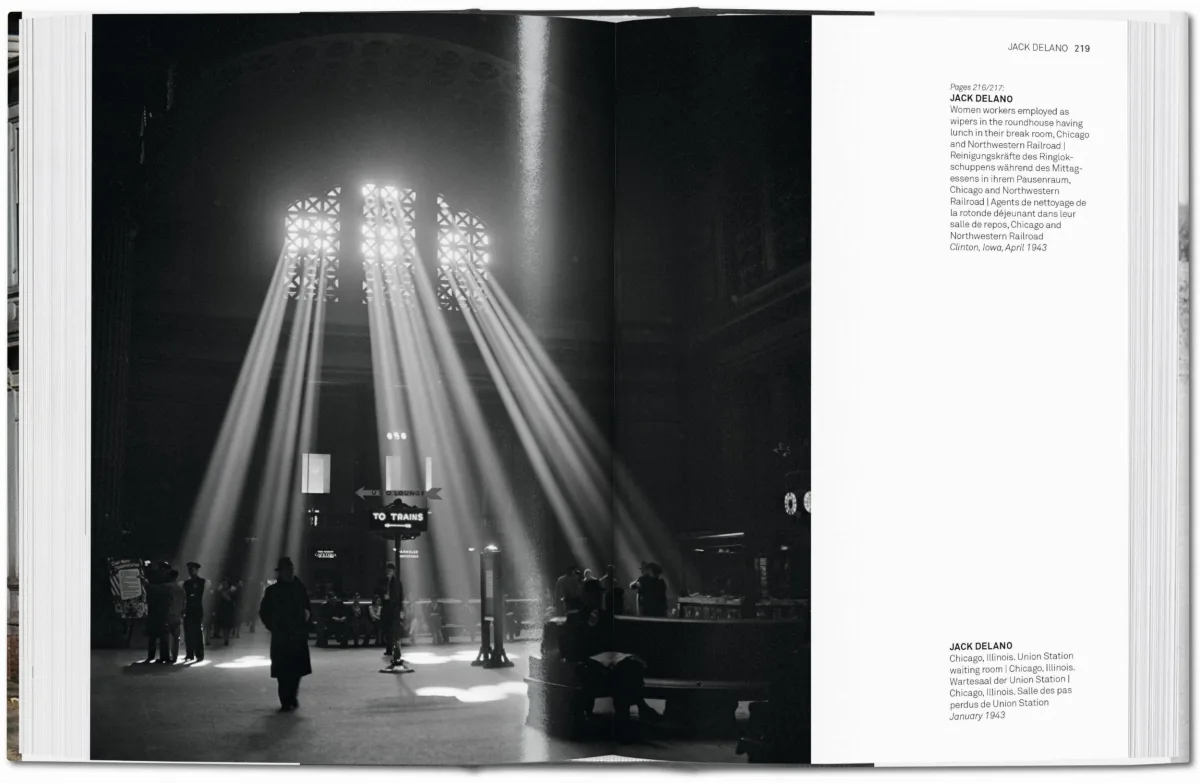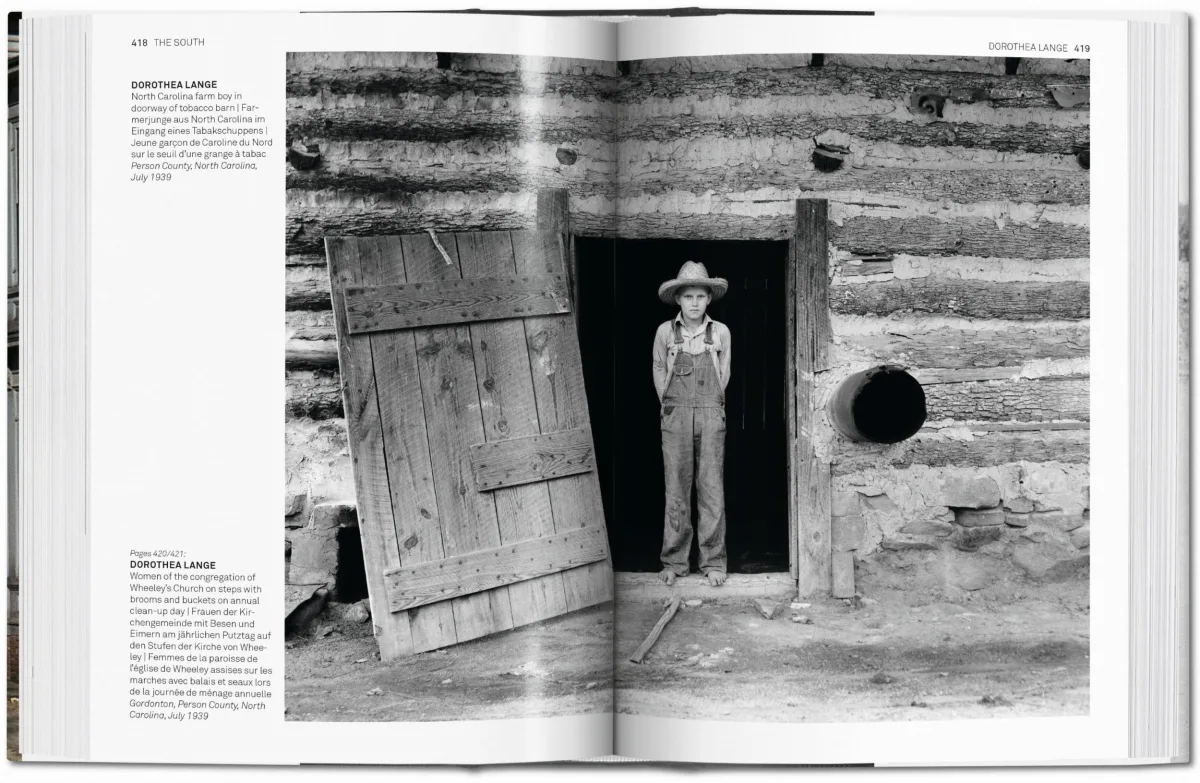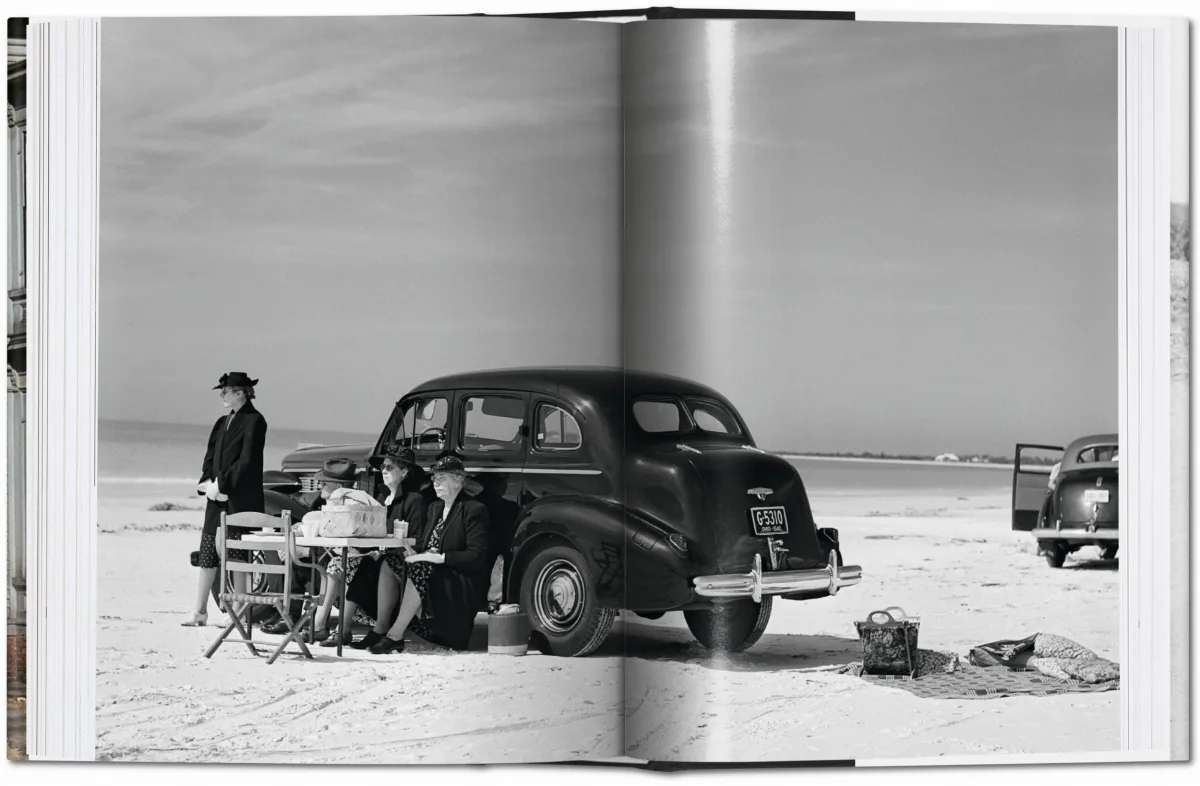1 / 8
New Deal Photography. USA 1935–1943
25Edition: Multilingual (English, French, German)Availability: In StockAmid the ravages of the Great Depression, the photographers of the Farm Security Administration set out to document the rural poor and “introduce America to Americans.” With nearly 400 pictures from the likes Dorothea Lange, Marion Post Wolcott, Walker Evans, and Russell Lee, this collection celebrates their efforts, as much for the power of each individual image as their collective and indelible survey of the United States.
Hardcover, 5.5 x 7.7 in., 2.18 lb, 608 pages
“…a comprehensive survey of the work done by the FSA, including that more rarely seen color work. From street scenes to pictures of field laborers and train yards, these images show us what the United States looked like in a bygone era, one rife with economic struggle.” ”

New Deal Photography. USA 1935–1943
25Another Country
How the Farm Security Administration introduced America to Americans
“Through these travels and the photographs, I got to love the United States more than I could have in any other way.” — Jack Delano
Amid the ravages of the Great Depression, the United States Farm Security Administration (FSA) was first founded in 1935 to address the country’s rural poverty. Its efforts focused on improving the lives of sharecroppers, tenants, and very poor landowning farmers, with resettlement and collectivization programs, as well as modernized farming methods. In a parallel documentation program, the FSA hired a number of photographers and writers to record the lives of the rural poor and “introduce America to Americans.”
This book records the full reach of the FSA program from 1935 to 1943, honoring its vigor and commitment across subjects, states, and stylistic preferences. The photographs are arranged into four broad regional sections but otherwise allowed to speak for themselves—to provide individual impressions as much as they cumulatively build an indelible survey of a nation.
The images are both color and black-and-white, and span the complete spetrum of American rural life. They show us convicts, cotton workers, kids, and relocated workers on the road. We see subjects victim to the elements of nature as much as to the vagaries of the global economic market. We find the work of such perceptive, sensitive photographers as Marion Post Wolcott, Jack Delano, Russell Lee, Walker Evans, Ben Shahn, and Dorothea Lange, and read their own testimonies to the FSA project and their encounters with their subjects, including Lange’s worn, weather-beaten and iconic Migrant Mother.
What unites all of the pictures is a commitment to the individuality and dignity of each subject, as much as to the witness they bear to this particular period of the American past. The subjects are entrenched in the hardships of their historical lot as much as they are caught in universal cycles of growing, playing, eating, aging, and dying. Yet they face the viewer with what is utterly their own: a unique, irreplaceable, often unforgettable presence.
Amid the ravages of the Great Depression, the United States Farm Security Administration (FSA) was first founded in 1935 to address the country’s rural poverty. Its efforts focused on improving the lives of sharecroppers, tenants, and very poor landowning farmers, with resettlement and collectivization programs, as well as modernized farming methods. In a parallel documentation program, the FSA hired a number of photographers and writers to record the lives of the rural poor and “introduce America to Americans.”
This book records the full reach of the FSA program from 1935 to 1943, honoring its vigor and commitment across subjects, states, and stylistic preferences. The photographs are arranged into four broad regional sections but otherwise allowed to speak for themselves—to provide individual impressions as much as they cumulatively build an indelible survey of a nation.
The images are both color and black-and-white, and span the complete spetrum of American rural life. They show us convicts, cotton workers, kids, and relocated workers on the road. We see subjects victim to the elements of nature as much as to the vagaries of the global economic market. We find the work of such perceptive, sensitive photographers as Marion Post Wolcott, Jack Delano, Russell Lee, Walker Evans, Ben Shahn, and Dorothea Lange, and read their own testimonies to the FSA project and their encounters with their subjects, including Lange’s worn, weather-beaten and iconic Migrant Mother.
What unites all of the pictures is a commitment to the individuality and dignity of each subject, as much as to the witness they bear to this particular period of the American past. The subjects are entrenched in the hardships of their historical lot as much as they are caught in universal cycles of growing, playing, eating, aging, and dying. Yet they face the viewer with what is utterly their own: a unique, irreplaceable, often unforgettable presence.
The author
Peter Walther has edited various publications on literary, photographic, and contemporary historical themes, including books on Goethe, Fontane, Thomas Mann, Hans Fallada, and writers in the First World War, as well as several illustrated books with historical color photographs. He is the author of the TASCHEN publications The First World War in Colour (2014), New Deal Photography. USA 1935–1943 (2016) and Anna Atkins. Cyanotypes (2023).
New Deal Photography. USA 1935–1943
Hardcover, 14 x 19.5 cm, 0.99 kg, 608 pagesISBN 978-3-8365-3711-7
Edition: Multilingual (English, French, German)Download product images here
5
February 16, 2024
Beautiful images made by the greats!
